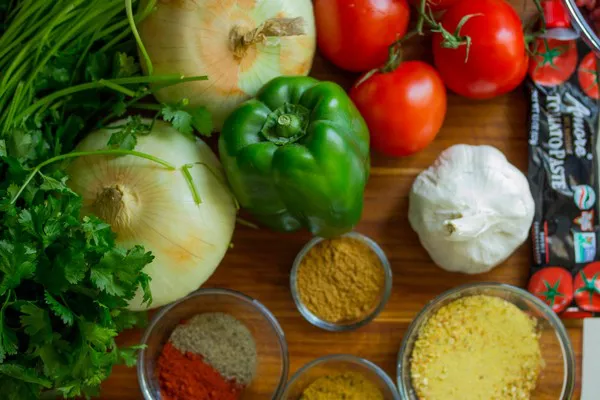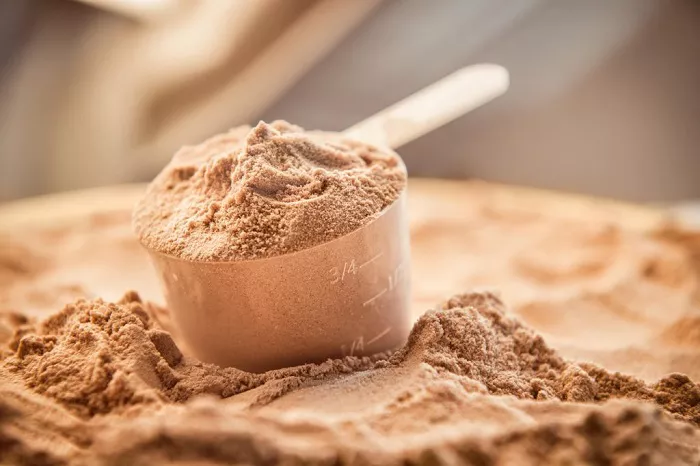Scar removal is a topic that has intrigued and concerned individuals for centuries. Whether it’s a scar from a childhood mishap, a surgical procedure, or an acne breakout, most people would prefer to see their skin healed and smooth. While there are various treatments and products available for scar removal, one often overlooked aspect of scar management is nutrition. In this article, we will delve into the world of scar removal and explore the role of food in promoting healing and reducing the appearance of scars.
Understanding Scar Removal
Before we delve into the foods that can aid in scar removal, it’s important to understand the basics of how scars form and the different methods used for their removal or reduction. Scar formation is a natural part of the body’s healing process. When the skin is injured, the body rushes to repair the damaged tissue. This repair process can result in the formation of a scar.
Scar Removal Techniques
Surgical Interventions in Scar Removal
One of the most common methods of scar removal is through surgical procedures, such as laser therapy or excision. These techniques involve physically removing the scar tissue or altering its appearance. However, even after surgical intervention, the role of proper nutrition cannot be underestimated in achieving optimal results in scar removal.
Topical Scar Treatments
Over-the-counter and prescription topical treatments are widely used for scar management. These products often contain ingredients like silicone gel or vitamin E. While these treatments are beneficial, the power of scar removal extends beyond the application of creams or gels.
Natural Approaches to Scar Reduction
Natural remedies have gained popularity in recent years for their potential in scar reduction. These include the application of oils, such as rosehip oil, or the use of vitamin-rich foods. This article focuses on the latter, as we explore the foods that can aid in the process of scar removal.
The Role of Nutrition in Scar Removal
Proper nutrition plays a pivotal role in promoting overall health and well-being. It should come as no surprise that the foods we consume can also influence the body’s ability to heal and repair damaged skin. Let’s explore the key nutrients and foods that can aid in scar removal.
Vitamin C: The Skin’s Best Friend in Scar Removal
Vitamin C is often hailed as a skin-friendly nutrient, and for good reason. This powerful antioxidant plays a crucial role in collagen production, a protein that is vital for skin elasticity and repair. Incorporating foods rich in vitamin C can help in scar removal by enhancing the body’s natural healing process.
Some excellent sources of vitamin C include citrus fruits like oranges and lemons, strawberries, kiwi, and bell peppers. These foods not only boost collagen production but also provide essential protection against free radical damage, which can hinder scar healing.
Vitamin E: A Staple in Scar Management
Vitamin E is another important nutrient that can aid in scar removal. This fat-soluble vitamin is known for its skin-nourishing properties and its ability to promote tissue repair. When applied topically, vitamin E can help reduce the appearance of scars. Additionally, including vitamin E-rich foods in your diet can contribute to scar healing from within.
Nuts, seeds, spinach, and avocado are all excellent dietary sources of vitamin E. Incorporating these foods into your daily meals can provide the necessary nutrients for scar removal and skin health.
Omega-3 Fatty Acids: The Unsung Heroes of Scar Reduction
Omega-3 fatty acids, commonly found in fatty fish like salmon and mackerel, as well as flaxseeds and walnuts, offer a myriad of health benefits. One such benefit is their anti-inflammatory properties, which can be particularly useful in scar management. Inflammation is a natural response to injury, but excessive or prolonged inflammation can impede the healing process and lead to more pronounced scars. Omega-3 fatty acids help reduce inflammation, aiding in scar removal.
Zinc: The Trace Mineral for Skin Regeneration
Zinc is a trace mineral that plays a crucial role in wound healing and tissue regeneration. It helps in the formation of collagen and supports the immune system’s response to injury. While zinc deficiency is rare, ensuring an adequate intake of this mineral through foods like lean meats, dairy products, and whole grains can support the scar removal process.
Protein: Building Blocks for Scar Healing
Proteins are the building blocks of the body, and they are essential for repairing damaged tissues. Collagen, which forms the structure of the skin, is a protein itself. Including protein-rich foods in your diet, such as lean meats, poultry, fish, tofu, and legumes, can provide the necessary amino acids for efficient scar removal.
Antioxidants: Guardians of Skin Health
are compounds that protect the skin from oxidative stress and damage caused by free radicals. In the context of scar removal, antioxidants can help maintain skin health and support the body’s natural healing processes. Foods rich in antioxidants include berries, dark leafy greens, and green tea.
By consuming a variety of antioxidant-rich foods, you can enhance your body’s ability to repair damaged skin and minimize scar formation.
The Importance of Hydration in Scar Removal
While we have discussed specific nutrients and foods that can aid in scar removal, it’s equally important to emphasize the role of hydration in the process. Water is essential for overall skin health and plays a critical role in scar management.
Scar tissue, like any other tissue in the body, requires adequate hydration to function optimally. When the skin is well-hydrated, it is more supple and pliable, making it less prone to developing raised or hypertrophic scars. Proper hydration also supports the body’s natural detoxification processes, helping to flush out waste products and promote healthy skin.
Incorporating an ample amount of water into your daily routine is a simple yet effective way to support scar removal. While there is no specific quantity that applies to everyone, a general guideline is to aim for at least 8-10 glasses of water per day. However, individual hydration needs may vary based on factors such as climate, activity level, and overall health.
Foods to Avoid for Scar Removal
In addition to focusing on scar-friendly foods, it’s essential to be mindful of foods that may hinder the scar removal process. Some dietary choices can promote inflammation or impair healing, potentially leading to more pronounced scars. Here are some foods to limit or avoid during scar removal:
Processed Foods:
Highly processed foods, including those high in sugar and unhealthy fats, can contribute to inflammation and oxidative stress in the body. These factors can hinder the body’s ability to heal scars efficiently.
Alcohol:
Excessive alcohol consumption can dehydrate the body, impair the immune system, and hinder the natural healing process. While moderate alcohol consumption may not pose significant issues, it’s best to minimize alcohol intake during scar removal.
Excessive Salt:
High-sodium diets can lead to water retention and swelling, potentially exacerbating the appearance of scars. Reducing salt intake can help maintain skin health during scar removal.
Caffeine:
Caffeine can dehydrate the body, and excessive caffeine consumption may interfere with sleep patterns, which are crucial for overall healing. Limiting caffeine intake, especially in the evening, can support scar removal.
Spicy Foods:
Spicy foods can cause increased blood flow to the skin, potentially leading to more pronounced redness and inflammation around scars. While moderate consumption is generally not problematic, it’s advisable to avoid excessively spicy meals during scar removal.
Meal Planning for Scar Removal
Now that we’ve discussed the key nutrients and foods that promote scar removal, let’s put it all together with some meal planning tips to support your journey toward smoother, scar-free skin.
Breakfast:
Start your day with a vitamin C-packed smoothie. Blend together fresh berries, spinach, Greek yogurt, and a dash of honey for added sweetness. This breakfast provides antioxidants, vitamin C, and protein to kickstart your day of scar healing.
Lunch:
Opt for a protein-rich salad with grilled chicken or tofu, leafy greens, cherry tomatoes, and a drizzle of olive oil and lemon juice. This meal provides protein for tissue repair and antioxidants for skin health.
Snack:
Enjoy a handful of mixed nuts and seeds for a dose of vitamin E and omega-3 fatty acids. These nutrient-rich snacks can help maintain skin elasticity and reduce inflammation.
Dinner:
For dinner, focus on lean protein sources like salmon or beans paired with a side of steamed broccoli and quinoa. This balanced meal provides zinc, protein, and omega-3 fatty acids for optimal scar removal support.
Hydration:
Throughout the day, prioritize hydration by drinking water, herbal teas, or infused water with slices of cucumber or lemon.
Conclusion
Scar removal is a journey that requires time, patience, and a multifaceted approach. While surgical interventions and topical treatments have their place in scar management, the role of nutrition should not be underestimated. By incorporating scar-friendly foods rich in vitamin C, vitamin E, omega-3 fatty acids, zinc, and protein, you can support your body’s natural healing processes and work towards smoother, scar-free skin.
Remember that scar removal is not a one-size-fits-all process, and individual results may vary. It’s essential to consult with a healthcare professional for personalized advice, especially if you have significant scarring or underlying medical conditions. In your pursuit of scar removal, a holistic approach that includes proper nutrition, hydration, and overall skin care can make a significant difference in achieving your desired results.
[inline_related_posts title=”You Might Be Interested In” title_align=”left” style=”list” number=”6″ align=”none” ids=”2730,2615,2655″ by=”categories” orderby=”rand” order=”DESC” hide_thumb=”no” thumb_right=”no” views=”no” date=”yes” grid_columns=”2″ post_type=”” tax=””]

































